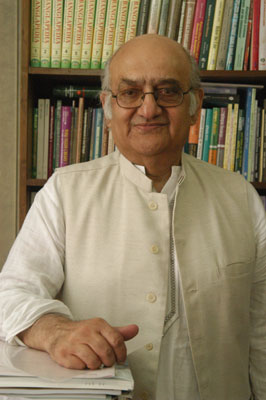
Sticking it to the man with the tool at hand
The Guardian and the LSE have partnered up on an impressive journalistic-cum-sociological analysis called “reading the riots”, examining the unrest that rocked England this summer on the basis of interviews with people involved, massive social media datasets, and various forms of secondary sources. This is a very laudable attempt to make sense of what happened why in August, important questions at the heart of both journalism and social science. The collaboration examines many different themes, today the role of different “social media” (and more generally, digital networked media) in the riots. The material released provides both qualitative and quantitative evidence for dismissing the claims—frequent in August, and spread by for example by an Associated Press story still up on thousands …
How are election preparations unfolding in the Democratic Republic of the Congo (DRC)? Hope or failure? Two perspectives.
Elections and the elusive quest for peace and stability in the eastern DRC: A perspective from the ground, based on fieldwork carried-out in North Kivu province in August and September, 2011 By Lindsay Scorgie Driving down the dusty main road of Butembo – a city of over half a million people, in the eastern DRC province of North Kivu – I hear the usual urban Congolese noises of motorcycles and lorries driving madly by. But these days there is a new sound too: shovels hitting the ground. All along the main road, construction is underway, as the central thoroughfare of Butembo is being paved for the first time. Not only is this an extremely rare sight in Congo, but it …
Gender Matters in Selection of Female Party Candidates in Canada
Christine Cheng has recently co-published an article with Margit Tavits in Political Research Quarterly arguing that female party presidents in Canada are more likely to nominate female party candidates. The research is based on original data from Canada’s 2004 and 2006 federal elections. When the party’s gatekeeper or president is female, the candidate is also six percent more likely to be a woman. The effect is small, but statistically significant, making it important to consider in policies aimed at increasing female representation in politics. Namely, beyond parties’ formal rules to encourage female participation, informal interactions matter. Having more women in top political posts can be just as effective for attracting women to politics as formal party regulations. Another important finding …

Supporting the past, ignoring the future? Public sector support for the media
Though Western media systems are going through a rapid and often painful transformation today with the rise of the internet and mobile platforms, the decline of paid print newspaper circulation, and the erosion of the largest free-to-air broadcast audiences, the ways in which governments provide direct and indirect support for the media have remained largely unchanged for decades. The bulk of the often quite considerable direct and indirect subsidies provided continue to go to industry incumbents coming out of broadcast and print, while innovative efforts and new entrants primarily based on new media receive little or no support. In central ways, public support for the media remains stuck in the twentieth century, and some parts of these support systems are …
The elephant in the tent: social and political justice, Tel Aviv, August 2011: a response to Or Rosenboim
Tel Aviv has known many hot summers in its history. But 2011 will probably be remembered as an exceptionally burning summer, one in which the city was flooded by tents occupied by young middle class residents, protesting against the rise in the cost of living. As Or Rosenboim argues, these protests were characterised by the claim to “go beyond the political”, to ask for social justice, referring to the colloquial distinction between issues relating to security and defence, and particularly, the Israeli-Palestinian conflict, regarded as “the political”, and “the social”. I wish to argue that these protests are closely interlinked to questions of foreign policy even though they put in much time and effort to avoid them. In a video …
Beyond left and right: thoughts on the protest in Israel
Since mid-July Israel has been going through a season of turmoil and protest. Most significantly, here, unlike both the Arab Spring movements and the London riots, there has been a violence-free protest. It all began when a young woman, Daphni Leef, had to leave her flat so that her landlord’s son could move in instead. Instead of looking for a new flat, she moved to a tent in Tel Aviv’s main street, ironically named ‘Rothschield Boulevard’. Ms Leef’s protest was not only her own: soon her tent was joined by many others who also wished to protest against the high cost of living in Tel Aviv. Within three weeks the protest swept the entire country. In as many as 3,000 …
Newspapers perform a valuable role in enforcing local accountability
In some ways this dichotomy might appear rather antiquated. After all isn’t everything online now and what difference do delivery systems make? But in reality we still see wide divergences between media organisations in terms of both consumption and production. First, consumption: The general tendency across many countries is that most people rely far more on TV than on the press for news. In the UK the disparity is very marked, with TV way out in front. Ofcom reported in 2009 that 74% of people in the UK used TV as their main source of UK news, way ahead of other news sources. More recent 2010 Ofcom figures surveying internet users showed TV ahead of the internet and newspapers as …

Challenging the Injustice of Poverty: a Conversation with Rehman Sobhan
Last week, Professor Rehman Sobhan, Chairman of the Center for Policy Dialogue in Dhaka, Bangladesh, visited the UN Development Programme in New York City to discuss his most recent book. I had the opportunity to speak with Professor Sobhan about the motivation behind his work and learn about the years of field research that preceded it. Challenging the Injustice of Poverty: Operationalizing an Agenda for Inclusive Development Across Southeast Asia is a culmination of Professor Sobhan’s efforts to understand the roots of economic exclusion across 5 countries over the past 4 years. At its core is Sobhan’s uncompromising insistence on identifying the source, as opposed to merely addressing the symptoms of poverty. According to Sobhan, poverty is not a social …









